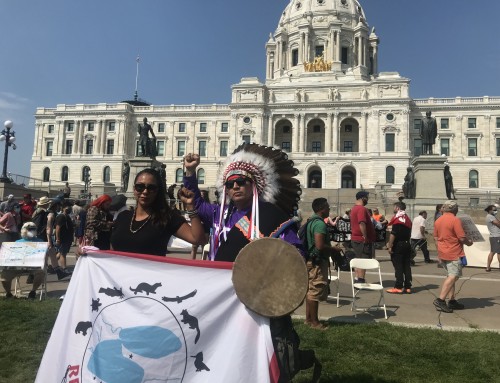 Thanks to Justamere Tree Farm Blog for this pictureThis story didn’t make it into the book, but I’ve always loved it. The facts came from the Yale alumni magazine, though the interpretation is my own:
Thanks to Justamere Tree Farm Blog for this pictureThis story didn’t make it into the book, but I’ve always loved it. The facts came from the Yale alumni magazine, though the interpretation is my own:
We live in a culture that values being tough and scorns those who are seen as naïve. But it is not naïve to look for the best in people. It really works, often better than defensive battling. One example comes from Yale University during the turbulent days of the Vietnam War. In May 1970, the Black Panther Party called for a large march in New Haven, home of Yale, while provocative leaders like Abbie Hoffman vowed to burn Yale down. The threat didn’t seem idle. A month earlier there had been a march at Harvard that went bad when marchers found the Harvard gates locked, resulting in 214 hospitalizations and $100,000 worth of property damage. Yale President Kingman Brewster decided not to repeat Harvard’s mistake. When the protesters came, he declared, Yale would not only keep its gates open; the university would coordinate their sleeping arrangements and serve them granola. Moreover, Brewster met ahead of time with student leaders to ensure a peaceful protest. The strategy worked. Although state troopers and Marines had been brought in by the state to quell the anticipated violence, the protests went relatively smoothly with the only vandalism caused by a fringe group of out-of-town provocateurs whom Brewster suspected of being “dirty tricks” operatives of the Nixon administration.
What strikes me about this story is the wisdom of keeping the Yale gates open and welcoming the protesters. We live in a culture that assumes grenades are stronger than granola, however, and Kingman Brewster was harshly criticized for these actions, accused of giving in to radicalism, even though his strategy for keeping the peace worked better than Harvard’s. Even thirty-six years later, an article about this incident in the Yale alumni magazine provoked a diatribe against Brewster being soft on the radicals.
Kingman Brewster was a white man in control of a rich and powerful institution. His decision to yield came from a position of power. But what about when we don’t have much power to begin with? Although we still have to accept our limited control, we may face a different challenge: the need to make sure we are not giving up too much. Indeed in promoting the spirituality of acceptance, I must quickly add that this real spiritual truth has sometimes been misused to keep people more passive than they need to be. In some ways, it is simple for a rich white man like Kingman Brewster to yield. The process is more fraught when someone like him is the one telling someone less powerful to yield.






Leave A Comment